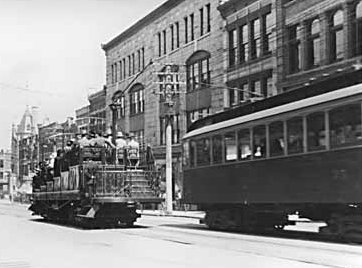Brad Sallows
Army.ca Legend
- Reaction score
- 8,873
- Points
- 1,040
People moving to cities aggravates the problem of a rail line which is already incapable of dependably serving peak capacity. The same problem (large queues of passengers) exists along some bus routes, but as has been done repeatedly in the past, "more buses".If you conveniently ignore that people are moving to cities faster than away that makes sense.
People move to cities because where there are more people and jobs, there are more opportunities. People are willing to forgo the personal space if it means they can have more access to entertainment, shopping, jobs, etc..
Canadian cities apart from Montreal and Toronto don't really have good rail transit, because everything has been so heavily biased toward cars. I'd wager that if places like New York*, Chicago, London, Tokyo, and Singapore have figured out rail transit, so places like Vancouver, Ottawa, Edmonton and Winnipeg can too.
*America has the same car culture as us, and yet they have figured out how to mix both cars and transit. Likely because their cities aren't pretending that they are small towns with a bit of a traffic problem.
I suppose "people" is shorthand for "young people", which isn't the same thing at all as "people".
Most of the places that "figured out" rail transit were able to do so because "figured out" essentially means "were able to build before the onset of skyrocketing costs".
I wish rail enthusiasts luck - it would be preferable were they to succeed - but I want them to do it with the riderships' money. In case anyone wants to bleat out "but roads are subsidized and constructed at public expense!" I remind them in advance that roads are also usable by everyone. I doubt I'll ever be permitted to take a privately owned vehicle onto a rail line.







